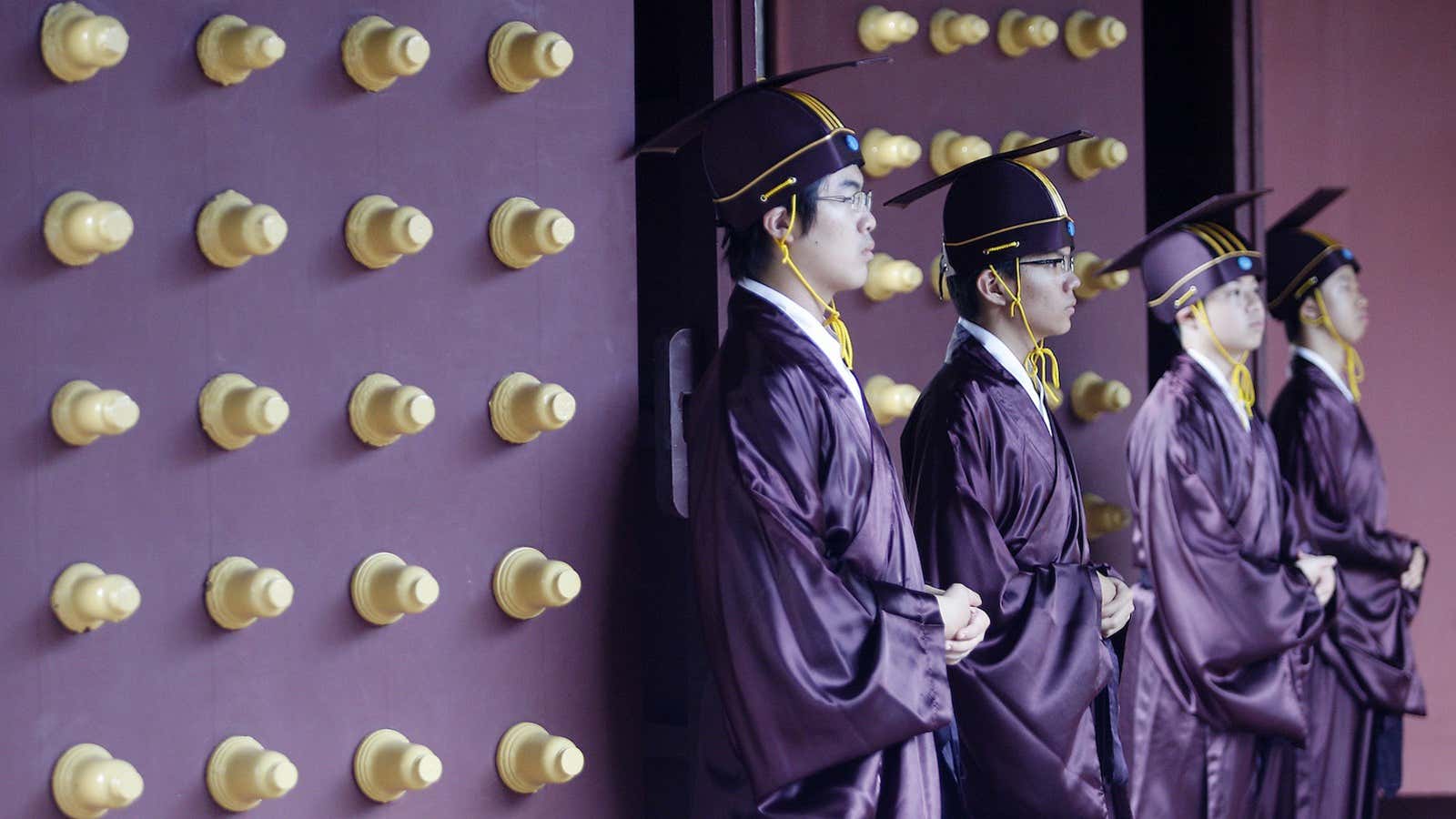When CEOs are looking for guidance, they might read Jack Welch, listen to Warren Buffett or study Steve Jobs. But there is another management guru who should get more attention inside corporate suites: Confucius
Sure, the Chinese philosopher espoused his doctrine 2,500 years ago—long before quarterly earnings reports, the S&P 500, labor unions, or even capitalism itself. Yet he spent much of his time deliberating on good leaders and how to become one. In fact, the Analects, the most famous text containing Confucius’s wisdom, is filled with advice for anyone aiming to win friends and influence people.
During his lifetime, Confucius’s target audience was China’s ruling elite—the kings, dukes and nobles who, by his reckoning, were doing a pretty lousy job of governing the country. His teachings, though, can be applied by anyone managing any sort of organization, the modern corporation included.
The ideal Confucian leader ought to be both strong and benevolent. Confucius believed that ultimate authority should be vested in one person, and that person should manage decisively. But Confucius did not favor autocrats. Leaders were not to abuse their power or dominate through coercion. Such tactics, Confucius believed, were ultimately self-defeating, since they drove people away. By caring for the people—in this case, a company’s employees, executives and shareholders—the Confucian leader gains their loyalty and cooperation. “The rule of virtue can be compared to the Pole Star which commands the homage of the multitude of stars without leaving its place,” Confucius said in the Analects.
Smart leaders, no matter how powerful, should also be open to dissent and discussion, Confucius believed. If they rejected advice, they could easily go astray. A duke once asked Confucius if there was a single sentence that could lead a state to ruin. “If what [a ruler] says is good and no one goes against him, good,” replied the sage. “But if what he says is not good and no one goes against him, then is this not almost a case of a saying leading the state to ruin?”
And with these qualities, the good Confucian leader led by example. “If a man is correct in his own person, then there will be obedience without orders being given,” Confucius said. “But if he is not correct in his own person, there will not be obedience even though orders are given.” In simpler terms: nice guys finish first, not last.
Such ethical pleasantries may sound all well and good—on paper. But can Confucian principles work in the rough-and-tumble business world of cutthroat competition, demanding shareholders and fickle customers? The evidence shows Confucian principles make for good business, not just good manners.
Just listen to South Korean entrepreneur Yoo Myoung Ho. Yoo is the founder of a lock manufacturing company called Unilock. But he also calls himself the “head of the family,” and runs his company in that benevolent spirit. In the wake of the 2008 financial crisis, while his counterparts in the U.S. were laying workers off by the millions, Yoo decided not to cut even one of his 200 employees. “It’s not just that they come here and get paid and that’s it,” Yoo told me. “They have families, too, and you can’t just let them suffer.”
As orders slowed, Yoo spread remaining work hours among the staff or reassigned them to product development teams. He had to make sacrifices to keep his no-layoff pledge, going into debt and assisting struggling workers out of his own pocket. “If a crisis comes, if you are the chairman, you take your salary and give it to the people,” he said.
Yoo, though, believes his generosity helps his business. When the economy strengthened, his staff was intact and ready to take advantage, selling the new products they had designed during the downturn. Yoo’s selflessness also encouraged loyalty among the employees. Not one departed from the firm when the crisis abated, saving him the expense and trouble of recruiting and training new workers.
Or take the case of Liu Chuanzhi, the founder of Chinese PC giant Lenovo. In 2009, Liu, then semi-retired, returned to active management when Lenovo was struggling to maintain market share. The outgoing CEO followed what Liu called the “classic MBA way”—working with individual department chiefs to implement decisions. That, Liu believed, failed to foster coordination and commitment among Lenovo’s managers to turn the company around.
Instead, Liu assembled the senior executives in a small committee that debated and agreed upon strategy, then met regularly to monitor execution. Liu, as the founder, has always held tremendous authority within the company. But, Liu insists, a good leader has to yield to limits on his power. “A top leader is usually strong and aggressive,” Liu explained in an email to me. “But he needs to be truly open to different opinions, and to be honestly willing to accept checks and balances. Therefore, all members in the company will have a feeling of ownership.” Liu credits his harmonious management system with the company’s turn around. Lenovo has since become the world’s top PC maker.
